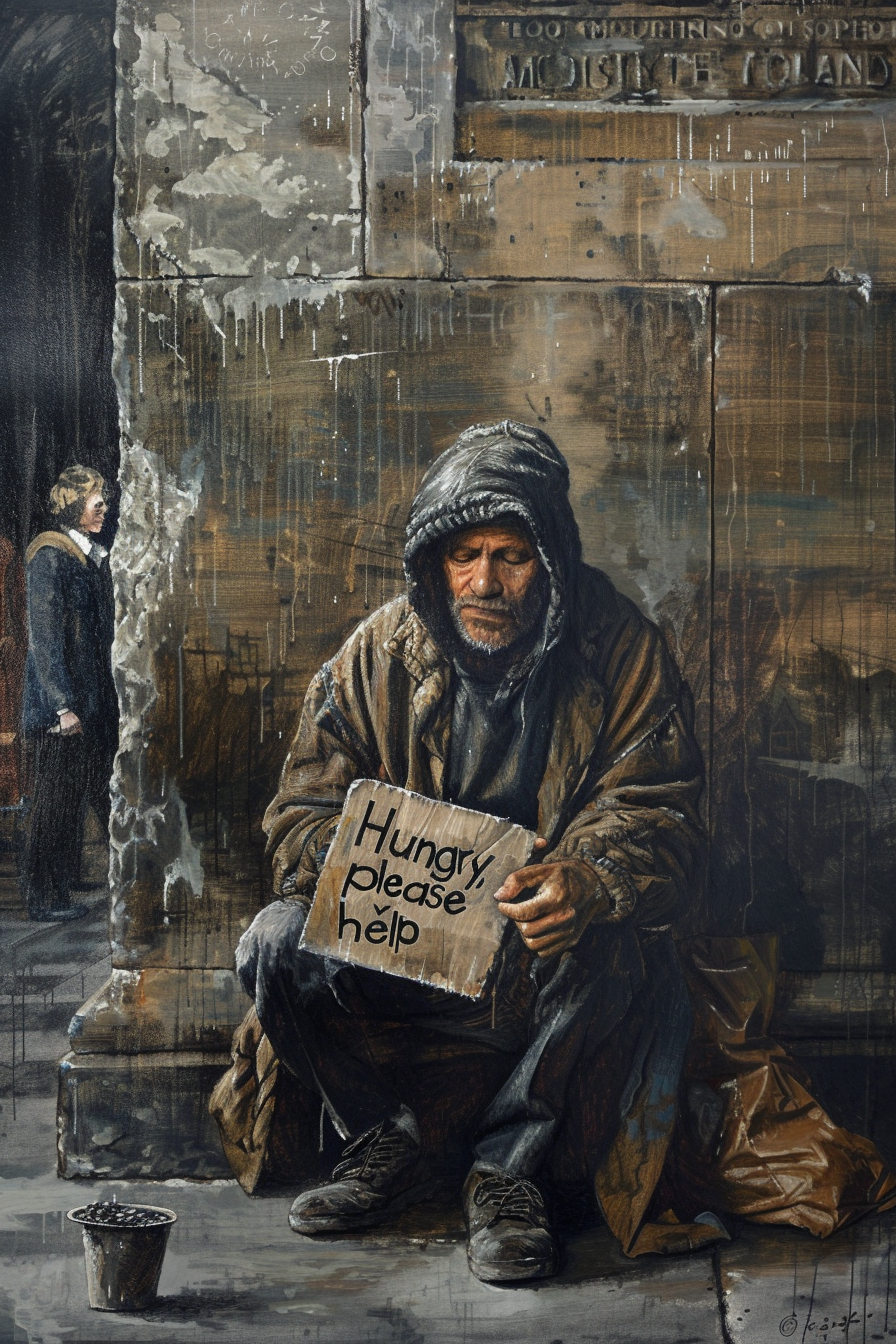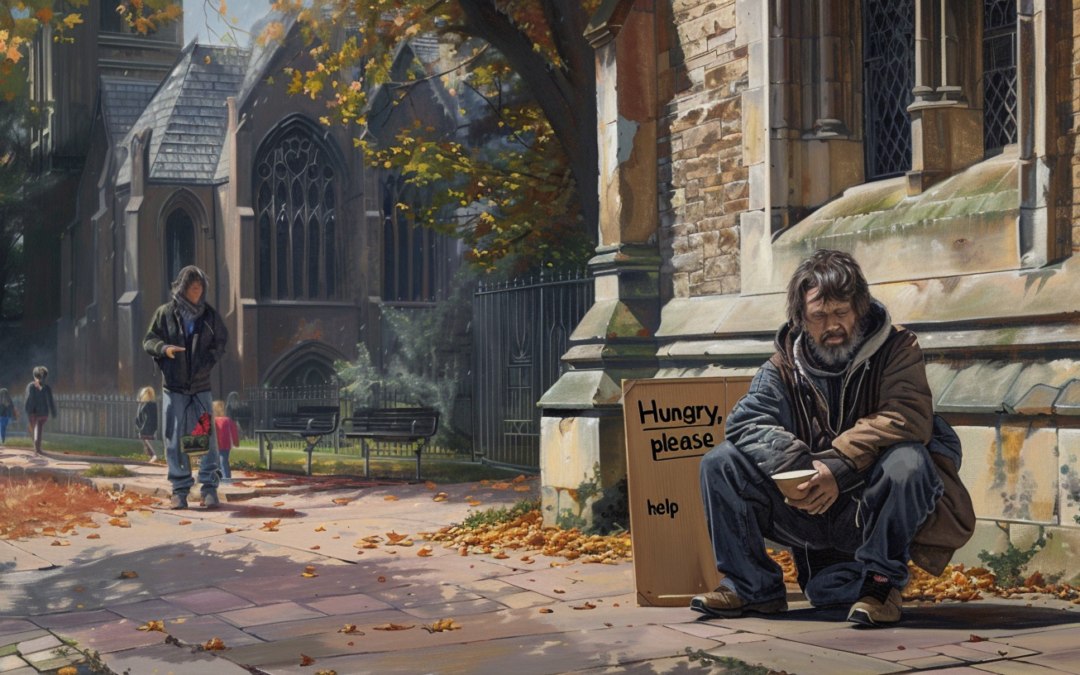
I’ve always believed that to follow Jesus meant to serve those in need, to be a beacon of hope and love in a world often darkened by despair and indifference. Growing up Southern Baptist, my faith was the cornerstone of my identity, guiding every decision, every action. At thirteen, I found my calling in mission work, coordinating clothing drives and food distribution, embodying the teachings of Jesus by helping the homeless in my town. It was a passion that led me to found a non-profit dedicated to this cause after high school. My faith was alive in this work, tangible and real.
But in 2012, everything began to change. The election of a new mayor, who was also my pastor, marked the beginning of a profound shift in my community and within my heart. Restrictions were placed on where we could feed the homeless, confining our outreach to less effective locations. This decision sparked a deep conflict within me, a tension between my dedication to my mission and my loyalty to my pastor and the political values I had grown up with.
By 2015, the situation had worsened. The mayor’s actions, from installing bars on benches to preaching political sermons that aligned Christianity with a particular political agenda, felt like a betrayal of the teachings I held dear. The church that had been my home, my community, began to feel foreign, its priorities skewed by politics and power. It was then I realized my values no longer matched up with those of my political upbringing. This realization was a painful awakening, a loss of innocence in many ways.
The years that followed were a crucible, transforming the very essence of my belief and trust in the institutions I had once held sacred. The restrictions placed on my shelter’s operations were just the beginning, a symptom of a deeper malaise that had taken root within the religious structures of my town. My efforts to serve the homeless, once celebrated, were now constrained by arbitrary boundaries set by the mayor, boundaries that made it nearly impossible to reach those in need where they lived. This, however, was more than an administrative hurdle; it was a clear message that the expression of my faith through service was no longer welcome in the community I had sought to uplift.
The loss of support from my community was both sudden and profound. Friends and fellow congregants I had known for years turned their backs, swayed by the divisive rhetoric that equated Christian duty with political allegiance. The church, once a place of refuge and fellowship, became an echo chamber of exclusion and judgment. Sermons that once spoke of love and redemption were now tinged with political vitriol, painting anyone outside the ideological fold as enemies of faith. This shift was not just disheartening; it was spiritually disorienting, challenging my understanding of what it meant to be a follower of Christ.
The most harrowing moment came when my shelter, a sanctuary for the least among us, was targeted and destroyed. The burning cross that lit up the night sky was a symbol of hate that seemed to mock the very essence of the teachings I had dedicated my life to embody. This act of violence was not just an attack on a physical structure; it was an assault on the principle of unconditional love and service that had guided my mission.
Being ostracized by my church compounded the pain of this loss. The community that had nurtured my faith, that had been the cornerstone of my life, now viewed me as an outcast. This rejection was a wound deeper than any physical injury, a betrayal that called into question the very foundation of my beliefs.
The culmination of these trials was the dissolution of my family. My wife, aligning herself with the church’s stance, chose to sever our bond, leaving me isolated in a way I had never before experienced. The court’s decision, influenced by the prevailing attitudes of the town’s leadership, stripped me of my home and my rights to my children. This loss was a profound blow, severing the last ties I had to a life I once cherished.
Facing homelessness myself, I was confronted with the reality of the very people I had sought to serve. This experience, while filled with hardship, was also eye-opening, offering a firsthand understanding of the systemic failures and societal indifference that perpetuate suffering. It was in this lowest point that I found a clarity of purpose, a resolve to rebuild not just my life but my faith on a foundation of genuine compassion and service.
These years of trial forced me to confront the darkest aspects of humanity, but they also illuminated the path forward. In the face of ostracization, loss, and violence, I discovered a resilience within myself and a conviction in the transformative power of forgiveness and love. This journey through the valley of despair has led me to a place of peace and purpose, guided by the teachings of Jesus in a way that transcends the confines of any church or creed.
Yet, it was on a bus to a small town in North Carolina, after being released from prison, that I found a sense of peace I hadn’t felt in years. Surrounded by others who had faced their own trials, I chose to forgive those who had hurt me, to let go of the bitterness and anger that had taken root in my heart. This decision wasn’t easy, but it was necessary for me to start anew, to rebuild my life on my own terms.
In North Carolina, I discovered a community that embraced me, a ministry that shared my commitment to helping the homeless. It was here that I redefined my faith, no longer identifying as Christian in the traditional sense but as a follower of the way of Jesus—the way of love, compassion, and service. My music, once a personal solace, became a means of connecting with others, of spreading hope and encouragement.
Today, I live a life that is radically different from the one I had envisioned for myself. I’m no longer tied to the dogma and institutions that once defined my existence. I’ve seen what happens when faith is co-opted by politics and power, and I want no part in that distortion of Jesus’ teachings. Instead, I focus on living out those teachings in my actions, helping those in need, and finding joy in the simple act of serving others.
Each evening, as I sit on my porch sipping hot tea and watching the sunset, I’m reminded of the journey I’ve been on. There’s a freedom in this moment, a sense of liberation from the chains of dogma and expectation. I may have lost much along the way, but in doing so, I’ve found something far more valuable: a faith that is truly mine, a purpose driven by love, and a peace that surpasses all understanding.
